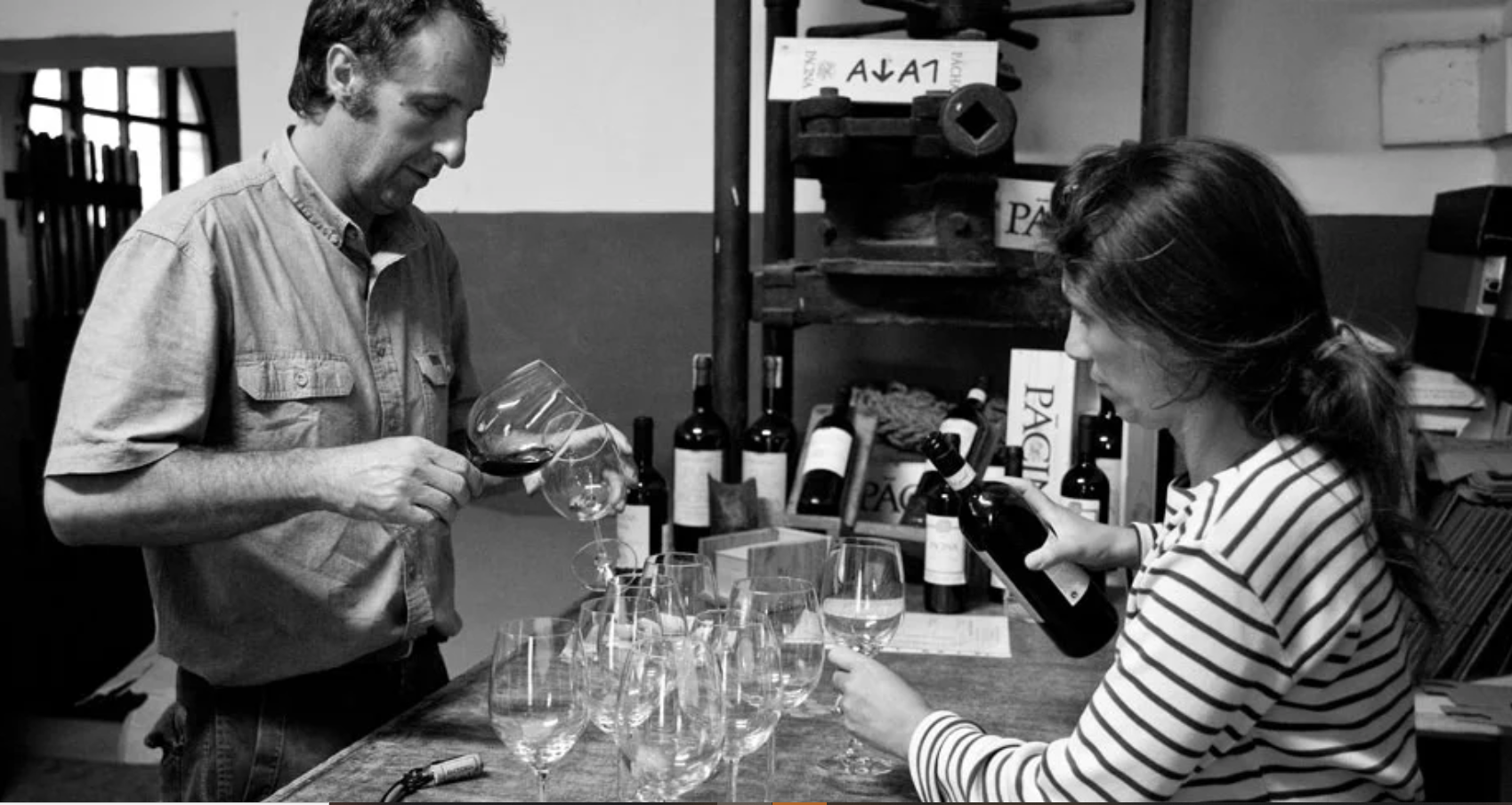Pācina: Making wine in the same way as our ancestors
Credit: Pacina
Pācina was purchased 100 hundred years ago by the Borsa family’s great great grandfather, and sits in the southern part of Chianti. The famed Chianti hills lend protection, while maintaining an aspect perfect for filling the vineyards with light and wind. The land is comprised of 65 hectares, of which only 10.5 is planted to vines. A monastery and farm built in the 10th century remain, now respectively the family’s home and tasting room. The soil, known as Tufo di Siena, is the result of sediment dating back to the Pliocene sea, some 50 millions years ago leaving mountains rich with loam, clay fossils and rocks.
Family members Enzo and Lucia - academics at Siena's University - were pioneers of the environmental movement in Italy. Some of their books are still today the main sources for sustainability studies.
I had the opportunity to chat with family member, Maria Borsa, recently.
LM: Can you share with me what sets you apart, and tell me a little about your philosophy?
I believe that our historical and ethical heritage is quite strong. Living up to the ideas transmitted for generations clearly has an impact on our visions and ways of living. Of course, these ideas are already implemented in our working systems, but it is still something I think about regularly. I think that having the possibility to live on Pacina allows us to see and experience the importance of biodiversity, which is something we wish to protect and develop. That philosophy has basically guided the family for so long and this is one of the most important factor of our farming approach.
Therefore, you can understand the ecological sensibility transmitted inspired the farming system since the very beginning. This approach has been actualized in 1987 with the idea of by bottling our wine that had seen low interventions in the cellar and complete respect of the ecosystem. Hence, the 1987 Pacina was born. At the time, the wines were bottled under the Chianti Colli Senesi appellation. That first official vintage was resulting from a selection of grapes from the oldest vineyards, natural methods in the cellar and without sulfites added. The road was then opened and since 1992, we’ve have been following the dream to bottle all the Pacina grapes within a natural approach.
To get to this result, it has been important to maintain the polycultural aspect of the farm: only 10.5 hectares of vineyards. The rest of the land counts 8 hectares of olive groves, 15 hectares of fields – mostly farmed with cereals and legumes. The remaining surface of the land are free fields, where the forest and the ecosystem find their balance and safeguard, the fundamentals of biodiversity.
LM: What is your opinion on the current trend of natural wine ? How do you see the landscape changing?
MB: I think that people are more and more curious about what they eat and what they drink. For me, this is a very beautiful thing. If the natural wine trend means encouraging consumers to introspect about how they view agriculture, consumption and their general value system, then I’m glad to see that happening. Growing up, my parents were already working in a traditional way, as some might describe now as a natural way. But for us, it’s simply how things were done by our ancestors – before the use of additives or chemicals. I feel and hope that in the future, these approaches will be seen as being normal things and become common for most people.
LM: What styles of wines are currently in your glass? Any predications for the future of low intervention wine?
MB: I think it’s important to experiment what other winemakers do - this is why we are rarely drinking our own wines. It’s also very fun to see the broadness of what type of wines exist. My husband and I just came back from our honeymoon in France and we had the chance to visit winemakers. Since then, we’ve been drinking the wines of the places that we enjoyed so much visiting and the people that we met. I think the natural wine movement has already reached a lot of producers but is also influencing upcoming and new winemakers. The market is getting bigger and it’s always very interesting to hear about each person’s work and environment. My prediction – and my wish – is to see the creativity and new ideas of winemakers, adapting themselves to the environmental changes but also thinking of new approaches to have a more positive impact on their eco-system.
Interested in tasting wines of this style? Crushable Concierge Club curates monthly mixed packs of international wines, featuring styles like Pācina. You can learn more about joining here.

